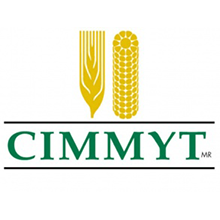
This position will support the Dryland Crops Program (DCP) lead pathologist in establishing high throughput phenotyping pipelines against biotic stresses (pests, diseases, and weeds) of dryland legumes and cereal crops in Africa. DCP crops include sorghum, millet, groundnut, cowpea, chickpea, and pigeon pea.
The position will be based at CIMMYT-Nairobi Campus in Kenya.
Specific duties:
- Support the development of high throughput phenotyping protocols for target dryland crops by designing new assays or recommending protocols based on regional network needs.
- Support breeding efforts by assisting breeders to select for resistance to various biotic stresses of dryland crops.
- Contribute to building dryland crop improvement networks and implementing ongoing DCP crops biotic stress screening activities in focus countries.
- Support with supervision and reporting - the establishment of phenotyping facilities and protocols.
- Support organization, presentation, and reporting of dryland crops biotic research results.
- Support achievement of capacity development needs for dryland crop improvement network.
- Ensure all network trials are uploaded in the Breeding Management System (BMS).
- Support pathology data analysis using software like R, SAS, and Genstat.
- Any other duties as assigned by the supervisor.
Requirements
- An earned Ph.D. plant pathology/phytopathology/entomology or any other closely related crop protection field from an internationally recognized university.
- A publication record in high-impact crop protection Journals.
- Expertise working with diverse biotic stresses and development of complex screening assays, including crop pests, pathogens, and weeds.
- Experience with natural or artificial biotic stress infestation including establishment of dirty plots in compliance with host country phytosanitary regulatory guidelines.
- Strong interpersonal and communication skills to manage complex collaborator relations including experienced breeders, social scientists, and crop protection experts.
- Basic knowledge of international seed exchange and phytosanitary guidelines in East and Southern Africa region.
- Ability to conduct staff training to staff working in resource-limited situations as part of establishing a cohesive network.
- Working knowledge of data analysis software like R, SAS, and Genstat.
- Track record of flexibility, adaptability, well organized and working under pressure with tight deadlines.
- Willing to travel widely (60%+) in East and Southern Africa, occasionally to West and Central Africa.
- Able to excel in a fast-paced, dynamic team environment and possess skills to manage support staff.
- Good reporting and communication skills in English (working language).
- The selected candidate should exhibit the following competencies: Problem Solving and Decision Making, Negotiation and Conflict Resolution, Teamwork, and Communication.
